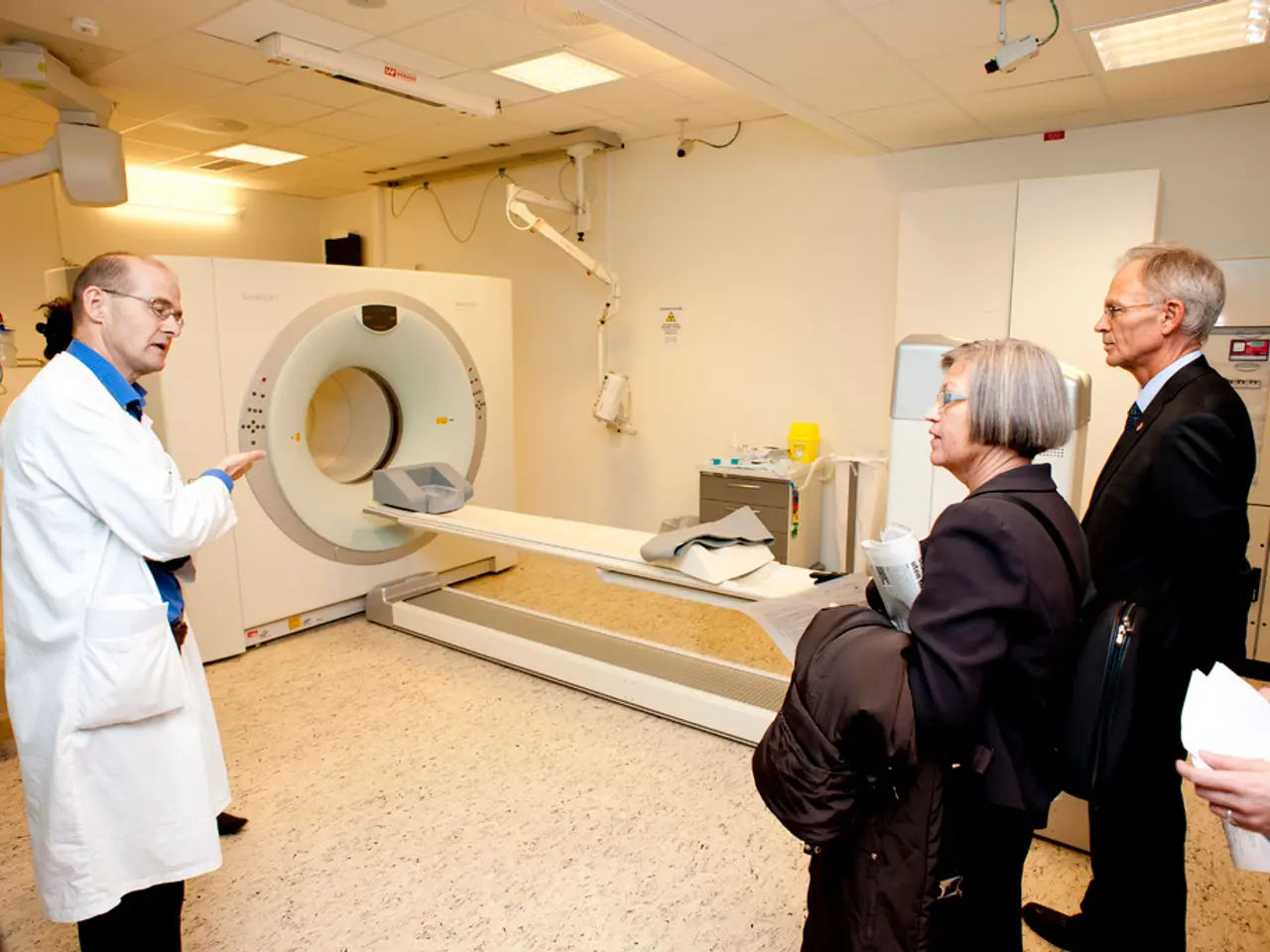Medical Professionals' Reliance on AI Decreases Patient Confidence
In the realm of modern medicine, the integration of artificial intelligence (AI) is becoming increasingly prevalent. However, a recent study reveals that this technological advancement may not be met with open arms by the general public [1][2][4].
The research, involving 1,276 adults, found that physicians described as employing AI were rated lower in competence, trustworthiness, and empathy compared to their counterparts who did not mention AI use [1][2]. For instance, competence scores dropped from an average of 3.85 to as low as 3.58 on a 5-point scale when AI was used therapeutically. Similarly, the willingness to make an appointment was highest in the control group (3.61) and lowest when therapeutic AI use was mentioned (3.15).
This negative perception applies across AI use types, including administrative, diagnostic, and therapeutic purposes, with no significant difference among these categories [1][2][4]. One suggested explanation is that patients harbour concerns about doctors relying too heavily on AI, potentially undermining the human judgment crucial to medical care and eroding the physician-patient relationship [4].
However, communication about how AI can free up doctors’ time or improve accuracy may help alleviate such concerns and potentially improve trust [4]. By emphasizing AI's supportive role rather than a replacement role, doctors could help patients understand that AI is intended to augment, not replace, human care.
Contrastingly, UK doctors themselves tend to view AI more optimistically, with over half expressing positive attitudes toward AI integration and acknowledging its benefits in productivity and clinical decision-making [3]. Despite this, low levels of training and understanding among physicians about AI risks and responsibilities remain a challenge affecting how AI is used and perhaps indirectly influencing public perception [3].
The study underscores a growing tension between the increasing use of AI in medicine and the public's desire for human-like care. Until fears about AI are addressed, it may negatively impact a doctor's image and potentially impact the overall patient experience [1]. Improving public understanding of AI's benefits in healthcare could help alleviate negative perceptions and find the right balance between technology and trust in the future of healthcare.
- The integration of artificial intelligence (AI) in health-and-wellness, such as therapeutic AI use, appears to raise concerns about competence, trustworthiness, and empathy in physicians according to a recent study, potentially affecting the public's overall perception of AI.
- The study further reveals that the perception of AI in mental-health care is also tainted, as the willingness to make an appointment was lowest when therapeutic AI use was mentioned.
- Conversely, technology advancements like AI are seen as beneficial by a majority of UK doctors themselves, particularly for productivity and clinical decision-making, suggesting a need for better public education about AI's role in mental health and wellness therapies and treatments.




